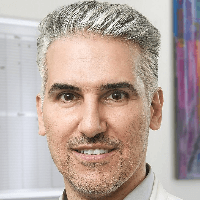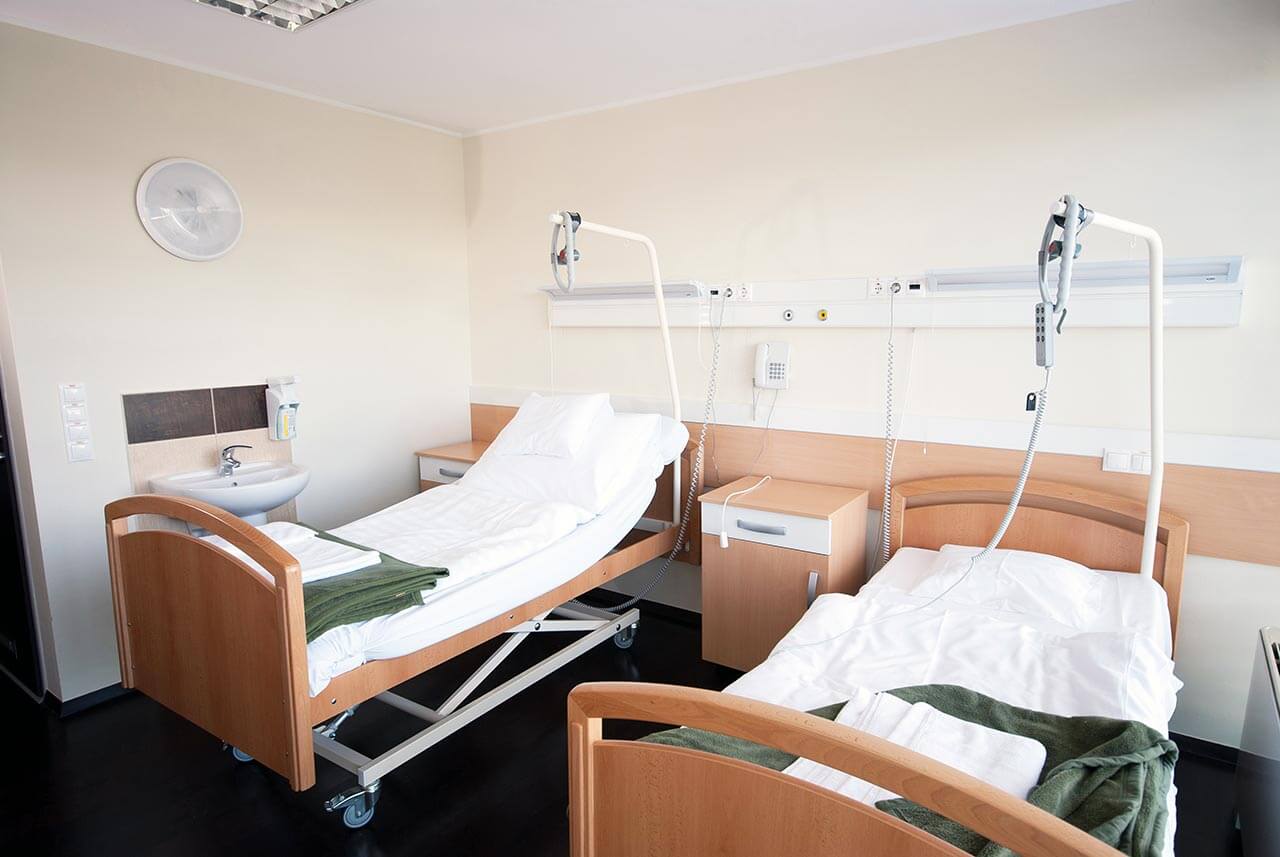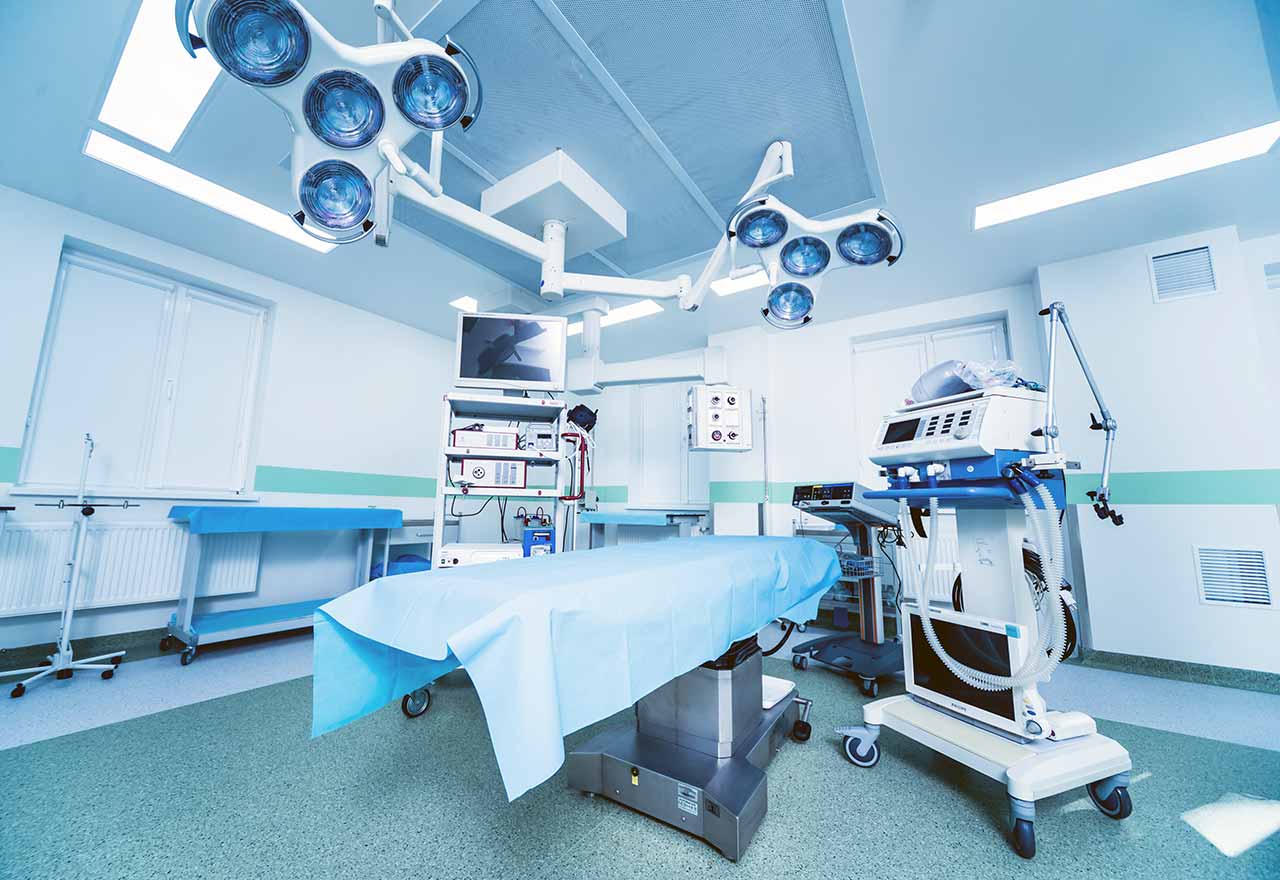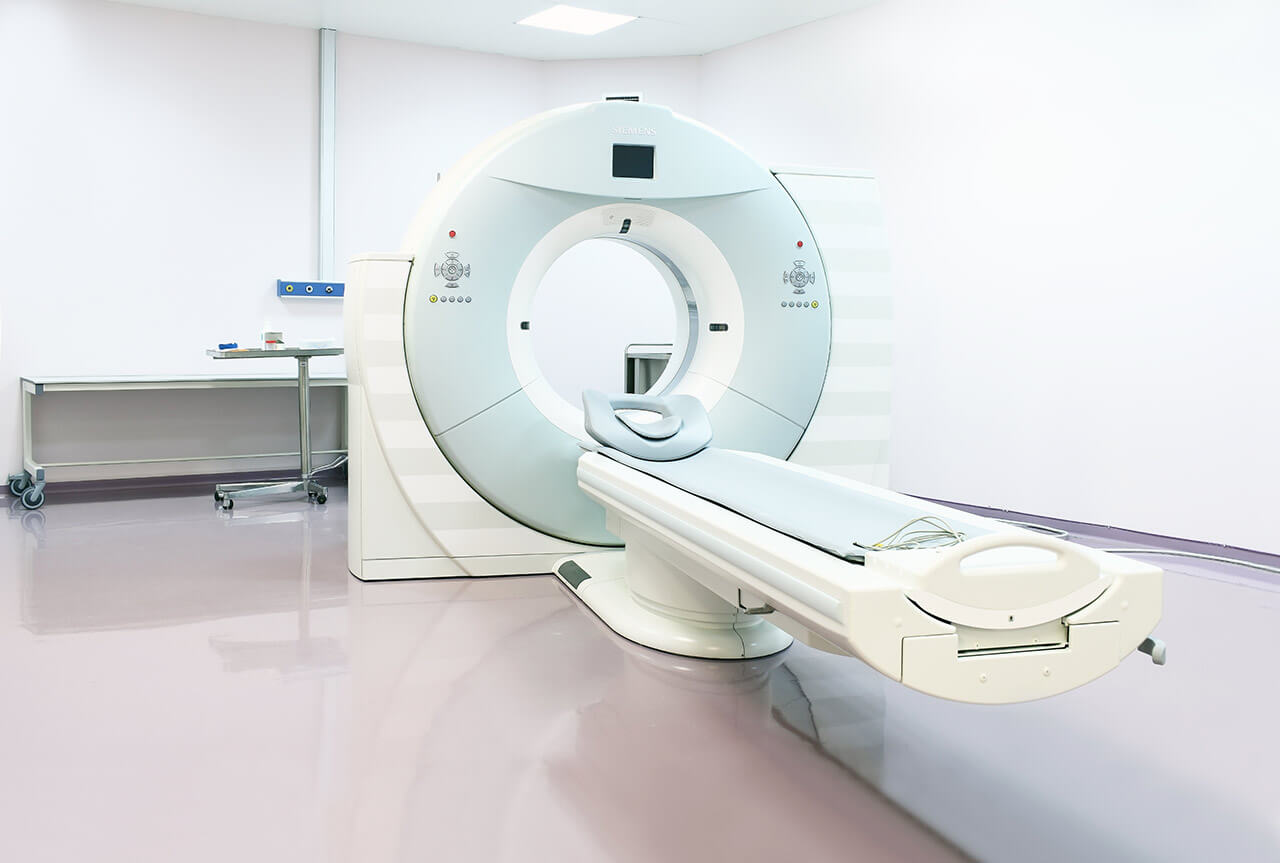
The program includes:
- Initial presentation in the clinic
- clinical history taking
- review of medical records
- physical examination
- laboratory tests:
- complete blood count
- biochemical blood analysis
- blood coagulation analysis (aPTT, PT, INR)
- inflammation indicators (CRP, ESR)
- metabolic analysis of blood
- cardiovascular disease risk markers
- kidney function test (creatinine, urea)
- color doppler echocardiography
- color doppler sonography of cerebral and peripheral vessels
- renal artery duplex
- CT angiography (on indication 1300 €)
- MRI angiography (on indication 1900 €)
- nursing services
- consultation of related specialists
- consultation of the chief physician and all leading experts
- development of individual treatment plan
- written statement
Required documents
- Medical records
- Doppler ultrasound/duplex scanning of the renal arteries (if available)
- Renal angiogram (if available)
Service
You may also book:
 BookingHealth Price from:
BookingHealth Price from:
About the department
The Department of Vascular Surgery at the HELIOS University Hospital Wuppertal specializes in the surgical treatment of vascular diseases. The focus of doctors is on such pathologies as carotid artery stenosis, obliterating endarteritis, abdominal aortic aneurysms, varicose veins, leg ulcers and chronic non-healing wounds caused by diabetic foot syndrome. The department has excellent diagnostic options for the detection of vascular pathologies – it offers state-of-the-art systems for Doppler ultrasound, duplex ultrasound, conventional angiography and CT angiography. The patients are provided with innovative endovascular techniques and methods of classical open surgery. The optimal treatment tactics are developed based on the patient's specific clinical indications and his wishes. Whenever possible, the department's specialists perform sparing endovascular treatment, while open surgery becomes an option of choice only in especially complex cases. The team of vascular surgeons is highly professional and does everything possible to provide the patient with the most effective treatment in a comfortable environment. The specialists cooperate with doctors from related medical fields, including neuroradiologists, diabetologists and other experts. The department is headed by Dr. med. Konstantinos Meletiadis.
Carotid artery stenosis is one of the most common diagnoses in the clinical practice of the department's doctors. The disease is characterized by a narrowing or complete closure of the lumen of the vessels supplying the brain. The cause of the pathological condition is usually the formation of atherosclerotic plaques on blood vessel walls. Carotid artery stenosis often provokes the development of a stroke, which can lead to irreversible changes in the brain functions or even lead to death. The complexity of the pathological condition is that it is completely asymptomatic and is mostly detected by chance, during an ultrasound examination. Should carotid artery stenosis be suspected, the attending physician will prescribe additional examinations for the patient (Doppler ultrasonography, electroencephalography, computed tomography, angiography), the results of which will help determine further treatment tactics. If the narrowing of the lumen of the carotid artery is insignificant, and the patient has no complaints, the department's specialists recommend eliminating risk factors that can provoke the progression of the disease: normalizing blood pressure, lowering lipid levels, stopping smoking, drinking alcohol, etc. At the same time, it is important to regularly undergo ultrasound scans to monitor the progression of the disease. However, the department's surgeons often have to resort to surgery for carotid artery stenosis. The surgical intervention is performed using endovascular techniques – through a small incision or puncture in the carotid artery. When performing the intervention, the vascular surgeon eliminates carotid artery stenosis or obstruction by implanting a special stent. The operation is performed under general anesthesia. For the maximum safety of the intervention, brain functions are controlled with the use of modern computer systems. The final stage of the operation is the ultrasound examination for assessing the results of the surgical intervention. A hospital stay after surgery lasts only a few days. During this time, the patient undergoes follow-up ultrasound scanning and receives recommendations for supportive drug therapy.
The team of the department's vascular surgeons shows excellent results in the treatment of obliterating endarteritis affecting the lower limb arteries. As the pathology progresses in a person, blood circulation worsens and a total block of the lumen of the arteries occurs, after which gangrene develops. Those patients who seek help at the early stages of pathology have the highest chances of recovery, since severe forms of obliterating endarteritis usually require open surgery. The diagnostic process begins with the study of the patient's medical history and clinical examination, followed by instrumental diagnostics conducted in cooperation with radiologists – ultrasound scans, angiography, CT or MRI scans. After confirming the diagnosis and determining the stage of obliterating endarteritis, the department's doctors begin to plan treatment. When diagnosed with a mild form of obliterating endarteritis, the patient is prescribed pharmacotherapy with anticoagulants and exercise walking, and it is strongly recommended to completely quit smoking (if the patient has this bad habit). The patients with advanced pathology require endovascular intervention. The department's surgeons use catheter techniques to place a special balloon or stent that eliminates arterial obstruction. The last-line therapy is open surgery, during which the surgeon opens the affected area of the artery, removes deposits on its walls and sutures the artery. Depending on the particular clinical case, the doctor may also give preference to a hybrid intervention combining endovascular and open techniques.
An important place in the department's work is given to the treatment of abdominal aortic aneurysms. The pathology has no severe symptoms, so it is often diagnosed during the examination for other diseases. To confirm the diagnosis, the department's doctors perform abdominal ultrasound and computed tomography. In some cases, angiography can be additionally performed. Abdominal aortic aneurysm surgery is the last-line therapy and is performed when the risk of rupture is high. Depending on the particular clinical indications, the department's vascular surgeons determine the optimal type of intervention – minimally invasive or open surgery. The doctors of the medical facility have well-equipped operating rooms and regularly undergo advanced training courses, therefore, they always strive to eliminate aneurysm with the help of low-traumatic interventions Such operations exclude increased stress on the heart, skin and soft tissue extensive incisions, as well as long-term postoperative recovery, which is typical for classical open surgery.
The department's team of surgeons also has many modern treatments for varicose veins. The therapeutic offer includes conservative methods (compression therapy, lymphatic drainage, sclerotherapy, laser therapy) and surgical treatment. Surgery for varicose veins is indicated only in severe forms of the disease, when the above mentioned conservative procedures do not give the desired result.
The department's range of medical services includes the following options:
- Open and endovascular interventions for balloon and stent placement for carotid artery stenosis in order to prevent stroke or in case of acute stroke
- Open and endovascular interventions for balloon and stent placement for thoracic and abdominal aortic aneurysms without the use of a heart-lung machine
- Open and endovascular interventions for balloon and stent placement on the pelvic and femoral arteries (bypass grafting, plastic surgery after tumor removal, balloon dilatations)
- Open and endovascular interventions for obliterating endarteritis
- Endovascular interventions for acute vascular thrombosis of all localizations outside the heart
- Endovascular interventions for vascular lesions due to diabetic foot syndrome (in collaboration with specialists from related medical fields)
- Dialysis access formation (outpatient and inpatient procedures) and endovascular interventions for correcting the implanted shunt
- Surgical treatment of varicose veins (at the interdisciplinary Vein Center)
- Surgical treatment of leg ulcers (trophic ulcers)
- Other surgical options
Curriculum vitae
University Education and Postgraduate Training
- 2007 Board certification in Surgery.
- 2009 Board certification in Vascular Surgery.
- 1998 - 2001 Study of Human Medicine, University of Duisburg-Essen.
- 1996 - 1997 Study of Human Medicine, Louis Pasteur University of Strasbourg.
Professional Career
- Since November 2020 Head Physician of the Department of Vascular Surgery at the HELIOS University Hospital Wuppertal.
- July 2017 - November 2020 Work at the Malteser Clinic Duisburg.
- April 2015 - June 2017 Managing Senior Physician, Department of Vascular Surgery at the HELIOS University Hospital Wuppertal.
- January 2009 - March 2015 Senior Physician, Department of Vascular Surgery at the HELIOS University Hospital Wuppertal.
- 2003 - 2008 Assistant Physician, Department of General and Visceral Surgery, Vascular Surgery and Traumatology at the HELIOS University Hospital Wuppertal.
- 2001 - 2003 Internship, City Hospital in Cologne.
Photo of the doctor: (c) Helios Universitätsklinikum Wuppertal
About hospital
According to the prestigious Focus magazine, the HELIOS University Hospital Wuppertal ranks among the top medical facilities in Germany!
The hospital rightfully enjoys the status of the maximum care medical facility and provides its high-quality services in all modern fields of medicine. The hospital operates on the basis of the Witten/Herdecke University, which was opened in 1982 and today is considered one of the best in Germany. Thus, many head physicians of the medical complex are in charge of the corresponding department at the university, which contributes to the close intertwining of research activities and clinical practice. The hospital has long traditions and its own values – the main goal of doctors is to provide comprehensive medical care focused not only on curing the disease, but also on the patient's personal needs.
The hospital has 1,000 beds. The doctors of the medical facility admit more than 50,000 inpatients annually. In addition, more than 100,000 outpatients undergo diagnostic and therapeutic procedures. Such high attendance rates speak for themselves and are undeniable proof of the high-quality medical service of the European level. The medical staff of the hospital has more than 2,500 employees, whose main task is to restore the patient's health and provide him with a decent quality of life.
The hospital has more than 26 specialized departments, as well as many narrowly focused centers and institutes dealing with the treatment of patients suffering from a particular group of diseases: Breast Center, Cancer Center, Cardiology Center, Trauma Center, Spine Center and others. The primary clinical focus of the medical center is cancer treatment.
For more than 25 years, the hospital has been running a special quality management system for medical care, which regulates the aspects of work of the medical staff, compliance with hygiene and safety standards during diagnostics and treatment. Consequently, patients can be sure that their health is in the safe hands of true professionals who work in accordance with the latest medical standards.
Special attention should be paid to the honors of the hospital for excellent patient care. The medical complex has quality certificates from the German Cancer Society (DKG), the German Trauma Society (DGU), the German Cardiac Society (DGK), the German Stroke Society (DSG) and other professional German societies.
Photo: (с) depositphotos
Accommodation in hospital
Patients rooms
The patients of the HELIOS University Hospital Wuppertal live in comfortable single, double, triple and quadruple rooms. Each patient room has an ensuite bathroom with shower and toilet. The standard room furnishings include a comfortable automatically adjustable bed, a bedside table, a wardrobe, a TV and a telephone. The hospital has Wi-Fi (free). For maximum patient comfort, there is a nurse call device on the bedside table. This device allows the patient to control the TV, radio, turn on or off the lights, and adjust the position of the bed.
The patients of the hospital are also offered accommodation in enhanced-comfort rooms. These rooms additionally provide a safe and a free minibar with soft drinks. The enhanced-comfort rooms also have a spacious bathroom with hairdryer, bathrobe, towels and toiletries.
Meals and Menus
The patients of the hospital are offered three meals a day: breakfast, lunch and dinner. The menu offers a variety of delicious dishes to suit all tastes, including dietary and vegetarian options.
The hospital also has a bistro where one can taste delicious hot dishes, cold snacks, desserts, as well as a cup of tea, coffee or refreshments.
The patients staying in enhanced-comfort rooms are offered a separate menu that includes a wider and more refined range of dishes. In addition, fresh fruit, tea, coffee and desserts are delivered to the patient room every day, if desired.
Further details
Standard rooms include:
Religion
The religious services are available upon request.
Accompanying person
During an inpatient program, your accompanying person can stay with you in the patient room or in the hotel of your choice.
Hotel
During an outpatient program, you can stay in the hotel of your choice. Our managers will help you choose the most suitable options.




